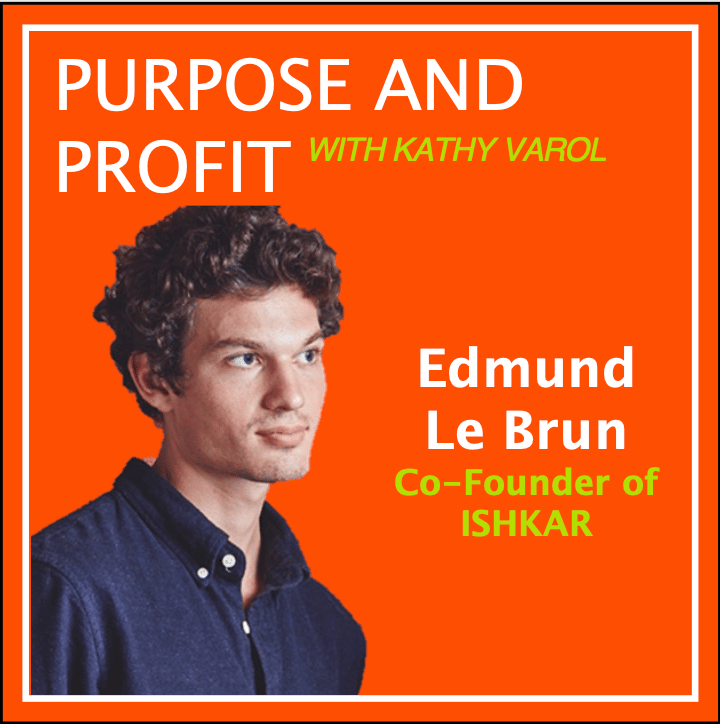Show Notes:
My friend Ed sent me a link to the most beautiful artisanal glassware made in Kabul, Afghanistan, sold by an amazing social enterprise called ISHKAR. When I learned more about the company and how they work with local craftspeople in difficult regions of the world I knew I had to feature them here.
On this episode of the Purpose and Profit Podcast I’m joined by Edmund Le Brun. Edmund is the co-founder of ISHKAR, a business using trade and travel as a means to create economic opportunities in countries impacted and cut off from the larger world by war and conflict. Edmund studied at Oxford University, and was made a Forbes 30 under 30 for his contributions to social enterprise.
Visit ISHKAR to buy unique products or sign up for one of their once-in-a-lifetime trips.
In this episode Edmund and I discuss:
- Why you don’t always need to do something new or innovative to create change.
- Why ISHKAR was founded as a for-profit business instead of a charity NGO.
- How the stories told by table glasses and hand-woven carpets ring louder and more true than bomb blasts and gunfire.
- How narrative and visibility can impact people just as much as direct action, and sometimes impact them more profoundly.
- What today’s and future consumers are looking for when they go shopping.
- How not being a trained business person can actually give you an edge.
Takeaways from this episode:
- Crafts are a huge part of the economy in developing nations, second only to agriculture. As a consumer, consider the potential impact you can have based solely on your purchase decisions.
- Singular narratives do a disservice to everyone involved by robbing both the listener and the subject of a full, complete story. Next time you hear a news report about conflict in a country on the other side of the world, challenge your own perceptions by digging deeper to discover more dimensional stories of the same country.
- Social enterprise and traditional NGOs both have their places in conflict zones and other challenged countries. By combining their unique strengths, both can work together and achieve more impact than when operating in their individual silos. Don’t dismiss any organization out of hand just because they’re structured differently, see how they can compliment the work you’re trying to do.
References:
- Ishkar
- Glassware by Mr. Nasarullah of Herat, Afghanistan
- Jewelry by Saeeda Etebari of Kabul, Afghanistan
- Carpets designed by Zaha Hadid and Frank Gehry, woven in rural Afghanistan

